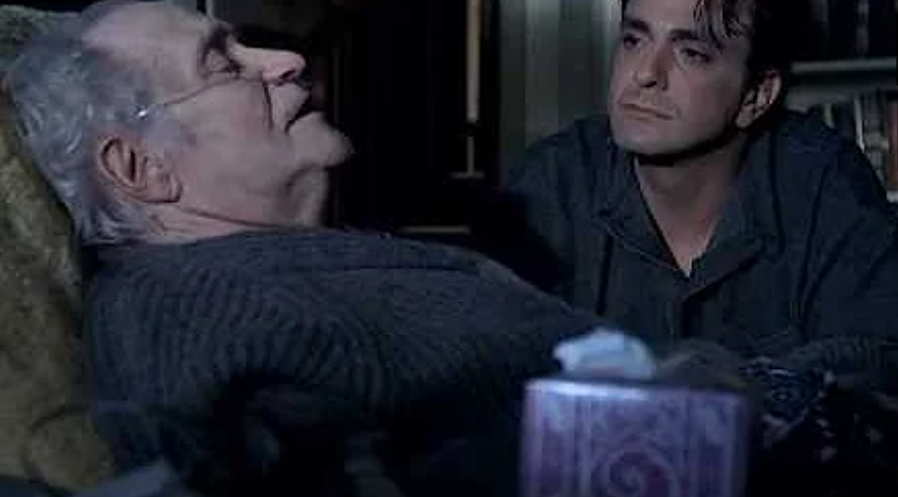
Today I want to share the life lessons that I’ve learnt from this beautiful book that I read recently, Tuesdays with Morrie.
Tuesdays with Morrie is a book about how the author Mitch Albom meets his favourite teacher Morrie and they spend Tuesdays talking about life. It has been a life-changing book for me, and it’s great for self-awareness.
So, here are 21 things that I felt were most important:
1. These are some excellent self-reflection questions and I spent a good long time thinking about them and answering them for myself.
“Have you found someone to share your heart with? Are you giving to your community? Are you at peace with yourself? Are you trying to be as human as you can be?”
2. Morrie has talked about “culture” multiple times in the book—how it is flawed; how you can create your own culture.
“Well, for one thing, the culture we have doesn’t make people feel good about themselves. We’re teaching the wrong things. And you have to be strong enough to say if the culture doesn’t work, don’t buy it. Create your own.”
3. This excerpt was so simple yet so impactful.
One afternoon, I’m complaining about the confusion of my age, what is expected of us versus what I want for myself.
“Have I told you about the tension of opposites?” he says. “Life is a series of pulls back & forth. You want to do one thing, but you are bound to do something else. Something hurts you, yet you know it shouldn’t. You take certain things for granted, even when you know you should never take anything for granted. A tension of opposites, like a pull on a rubber band. And most of us live somewhere in the middle.”
Sounds like a wrestling match, I say. “A wrestling match,” he laughs. “Yes, you could describe life that way.” So which side wins, I ask?
He smiles at me, the crinkled eyes, the crooked teeth. “Love wins. Love always wins.”
4. The way to happiness in life is by serving the greater cause.
“So many people walk around with a meaningless life. They seem half-asleep, even when they’re busy doing things they think are important. This is because they’ve been chasing the wrong things. The way you get meaning in your life is to devote yourself to loving others, devote yourself to your community around you, and devote yourself to creating something that gives you purpose and meaning.”
5. This is another impactful excerpt from the book:
“Mitch, you asked about caring for people I don’t even know. But can I tell you the thing I’m learning most with this disease?”
What’s that?
“The most important thing in life is to learn how to give out love, and how to let it come in.”
His voice dropped to a whisper, “Let it come in. We think we don’t deserve love, we think if we let it in, we’ll become too weak. But a wise man named Lenin said it right. He said, ‘Love is the only rational act.'”
He repeated it carefully, pausing for effect. “Love is the only rational act.”
6. We avoid silence. We avoid solitude. We don’t think of it as a gift. We think of it as loneliness. Let me tell you something, you need to be happy alone to be happy with people. The best introspection happens when you’re in solitude.
“Why are we embarrassed by silence? What comfort do we find in all the noise?”
7. Trust. Faith. All happens within.
“Sometimes you cannot believe what you see, you have to believe what you feel. And if you’re ever going to have other people trust you, you must feel that you can trust them too – even when you’re in the dark. Even when you’re falling.”
8. “Everyone knows they’re going to die, but nobody believes it. If we did, we would do things differently.”
So we kid ourselves about death, I said.
“Yes. but there’s a better approach. To know you’re going to die, and to be prepared for it at any time. That’s better That way you can actually be more involved in your life while you’re doing.” How can you ever be prepared to die?
“Do what the Buddhists do. Every day, have a little bird on your shoulder that asks, ‘Is today the day? Am I ready? Am I doing all I need to do? Am I being the person I want to be? Is today the day I die?'”
9. “Once you learn how to die, you learn how to live.”
Why is it so hard to think about dying?
“Because most of us all walk around as if we’re sleep-walking We really don’t experience the world fully, because we’re half-asleep doing things we automatically think we have to do.” And facing death changes all that?
“Oh yes! You strip away all the stuff and you focus on the essentials. When you realize that you’re going to die, you see everything much differently.
Well, the truth is, if you accept that you can die at any time—then you might not be as ambitious as you are. The things you spend so much time on—all this work you do—might not seem as important.”
10. On speaking about family:
“The fact is, there is no foundation, no secure ground upon which people may stand today if it isn’t family. If you don’t have the support and love and caring that you get from a family, you don’t have much at all. love is supremely important. As our great poet Auden said, ‘Love each other or perish.’ This is a part of what a family is about, not just love, but letting others know there’s someone who’s watching out for them. Nothing else will give you that.”
11. On having children or not:
“Whenever people ask me about having children or not, I never tell them what to do. I simply say, ‘There’s no experience like having children,’ That’s all. There’s no substitute for it. You can’t do it with a friend. You can’t do it with a lover. If you want to experience having complete responsibility for another human being and to learn how to love and bond in the deepest way, then you should have children.”
12. Attachments, detachments, and learning to detach:
“Learn to detach. And this is important—not just for someone like me, who is dying, but for someone like you, who is perfectly healthy. You know what the Buddhists say? Don’t cling to things, because everything is impermanent.
Detachment doesn’t mean you don’t let the experience penetrate you. On the contrary, you let it penetrate you fully. That’s how you’re able to leave it.
Take any emotion—love for a woman, or grief for a loved one, or what I’m going through, fear & pain from a deadly illness. If you hold back on the emotions – if you don’t allow yourself to go all the way through them – you can never get to being detached, you’re too busy being afraid. You’re afraid of the pain, you’re afraid of the grief. you’re afraid of the vulnerability that loving entails. But by throwing yourself into these emotions, by allowing yourself to dive in, all the way, over your head even, you experience them fully & completely. You know what pain is. You know what love is. You know what grief is. And only then can you say, ‘All right, I have experienced that emotion. I recognize that emotion. Now I need to detach myself from that emotion for a moment.”
13. On money:
Morrie observed that most of the patients in the mental hospital had been rejected and ignored in their lives, made to feel that they didn’t exist. They also missed compassion—something the staff ran out too quickly. And many of these patients were well-off, from rich families, so their wealth didn’t buy them happiness or contentment. It was a lesson he never forgot.
14. Do what you love. Else, love what you do.
“Do the kind of things that come from the heart. When you do, you won’t be dissatisfied, you won’t be envious, you won’ be longing for somebody else’s things. On the contrary, you’ll be overwhelmed with what comes back.”
15. “Love is how you stayed alive, even after you were gone.”
16. Think how good it would’ve been if we did it too! Just being in the moment, being 100 percent present—actually listening to the other person.
“I believe in being fully present. That means you should be with the person you’re present with. When I’m talking to you now, I try to keep focused on only what’s going on between us. I’m not thinking about what we said last week, I’m not thinking of what’s coming up this Friday. I am talking to you. I am thinking about you.”
17. “In this culture, it’s so important to find a loving relationship because so much of the culture doesn’t give you that. Today, people don’t know what they want in a partner because they don’t know who they are themselves.
There are a few rules that I know to be true about love and marriage. If you don’t respect the other person, you’re gonna have a lot of trouble. If you don’t know how to compromise, you’re gonna have a lot of trouble. If you can’t talk openly about what’s going on between you, you’re gonna have a lot of trouble. Your values must be alike.
And the biggest one of those values? Your belief in the importance of your marriage.”
18. This one, I repeat in my head many times:
“People are only mean when they’re threatened.”
19. On building your own subculture:
“Here’s what I mean by building your own little subculture. I don’t mean, disregard every rule of your community. I don’t run around naked. I don’t run through red lights. The little things, I can obey. But the big things—how we think, what we value—those you must choose yourself. You can’t let anyone or any society determine those for you.”
20. On forgiveness and regrets:
“Forgive yourself before you die. Then forgive others. There is no point in keeping vengeance or stubbornness. These things I regret in my life. Pride. Vanity.
We also need to forgive ourselves. For all the things we didn’t do. All the things we should have done. You can’t get stuck on the regrets of what should have happened. That doesn’t help you when you get where I am. I always wished I had done more with my work, written more books. I used to beat myself up over it. Now I see that never did any good. Make peace. With yourself and with everyone around you.”
21. “There is no formula to relationships. They have to be negotiated in loving ways, with room for both parties, what they want & what they need, what they can do, and what their life is like. In business, people negotiate to win. They negotiate to get what they want. Love is different. Love is when you are as concerned about someone else’s situation as you are about your own.”
Which one of these was the best one for you? Let me know in the comments below.
Side note: this is my first blog on this site. I have been a regular reader and the articles on this platform are amazing!
Also, let me know if there are any other books that you’d want me to write about.
~










Read 3 comments and reply